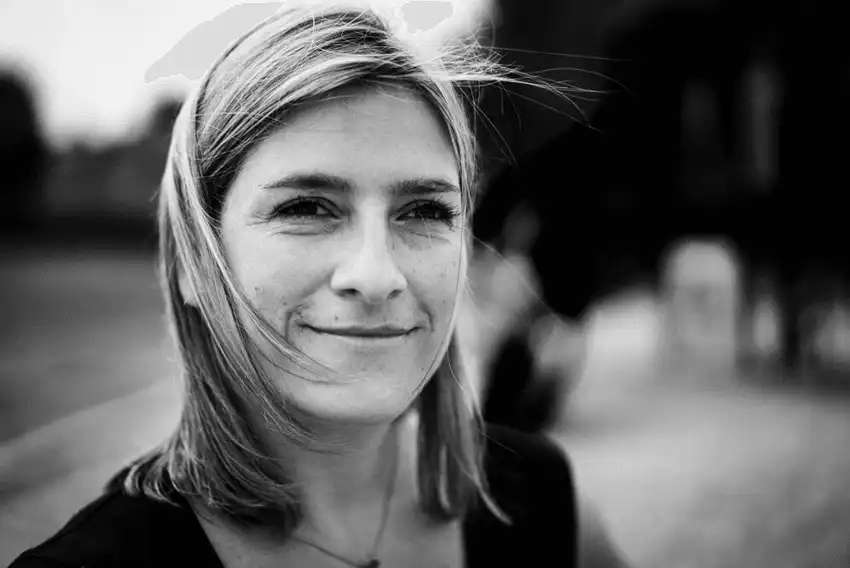Home>Pauline Vermare: Sciences Po and the politics and power of the image
15.07.2020
Pauline Vermare: Sciences Po and the politics and power of the image

Pauline Vermare, the Cultural Director for Magnum Photos New York, believes that “it's thanks to Sciences Po that I am what I am now.” After graduating with a Master of International Relations, Vermare embarked on a transatlantic career in photography and remains extremely thankful for what she received from Sciences Po.
Vermare, who grew up in France, Japan and Hong Kong, spent her undergraduate years studying Japanese at the Institut National des Langues et Civilisations Orientales (Langues’O) in Paris. She was initially concerned that, after growing up abroad, Sciences Po would feel too French, but she found that Sciences Po gave “a very modern, very positive education.” In her International Relations program, she realized that “this was the most open, international place I’ve ever been in.”
The diverse community that Vermare encountered left a lasting impression. “I think all the main characteristics of the people, the friends who are still, today, my dearest friends whom I met at Sciences Po, were people who were very open-minded and curious and passionate,” she says. “I think this was really lucky for me to find such a group of people.” She describes an openness from not only the students, but also the teachers.
Vermare fondly remembers her teachers at Sciences Po, describing how “there was something about the teachers; they would really pull you in, in a very natural way.” She recalls one international relation’s teacher, Ghassam Salame, who opened class “with Mstislav Rostropovich with his cello at the Berlin Wall, and that was in the amphitheater, was so moving, and it was so intelligent to show us,” she remembers. “That's how you engage your students.”
Vermare is quick to point out that she got started in the photography world thanks to Sciences Po, after hearing the then head of culture at Magnum Paris, Agnes Sire, give a conference. After graduating, she began an internship at Magnum, then did a six-month internship at Politique Internationale. Missing photography, however, she next took an internship at the Fondation Henri Cartier-Bresson, that was opening in Paris. She ended up working there for the next seven years. Thanks to that experience, she met Peter Galassi, the head of photography at the MoMA at the time, who hired her as a curatorial assistant for the Cartier-Bresson retrospective that opened at MoMA in 2010: “Henri Cartier-Bresson -The Modern Century”. After MoMA, Vermare worked as a curator at the International Center of Photography (ICP) for seven years, before joining Magnum New York as the cultural representative of the agency’s photographers in North America. At Sciences Po, she remembers, “no matter what you did, you knew you would end up in the right spot somehow, because it would go to the core of your personality. There was something very personal about the way we were taught.”
As the Cultural Director, Vermare guides Magnum photographers in a direction that ensures their work shines. She is responsible for both the younger generation of photographers and estates and finds it “particularly interesting to combine the archive with the contemporary.”
In her role at Magnum Photos, Vermare sees herself as an ambassador of Magnum to both the cultural and the academic worlds, a role in which she, without a doubt, employs the skills acquired studying international relations. She describes how “Magnum is art, and it's also politics. So, I think that having studied at Sciences Po really helps me a lot with that angle. I think Magnum would not be complete if you only presented it as art.” She adds, “Magnum is not just beautiful images. It's really history and politics, as well as the beauty and power of the image.”
One of the most important things Vermare learned at Sciences Po was how to network, the skills to make things happen through “helping and being helped.” She advises current students and young graduates to take advantage of the Sciences Po network to pursue internship opportunities. “You have to explore for a few years,” she recommends. “Through that network, there's an incredible array of possibilities.”
It is clear that Sciences Po had an enormous impact on Vermare, but what she still remembers most is the feeling of being surrounded by the Sciences Po community. “It is an overall feeling of being surrounded by a network that is bienveillant, well-wishing,” she says. “That's very positive. And that is quite, quite precious.”